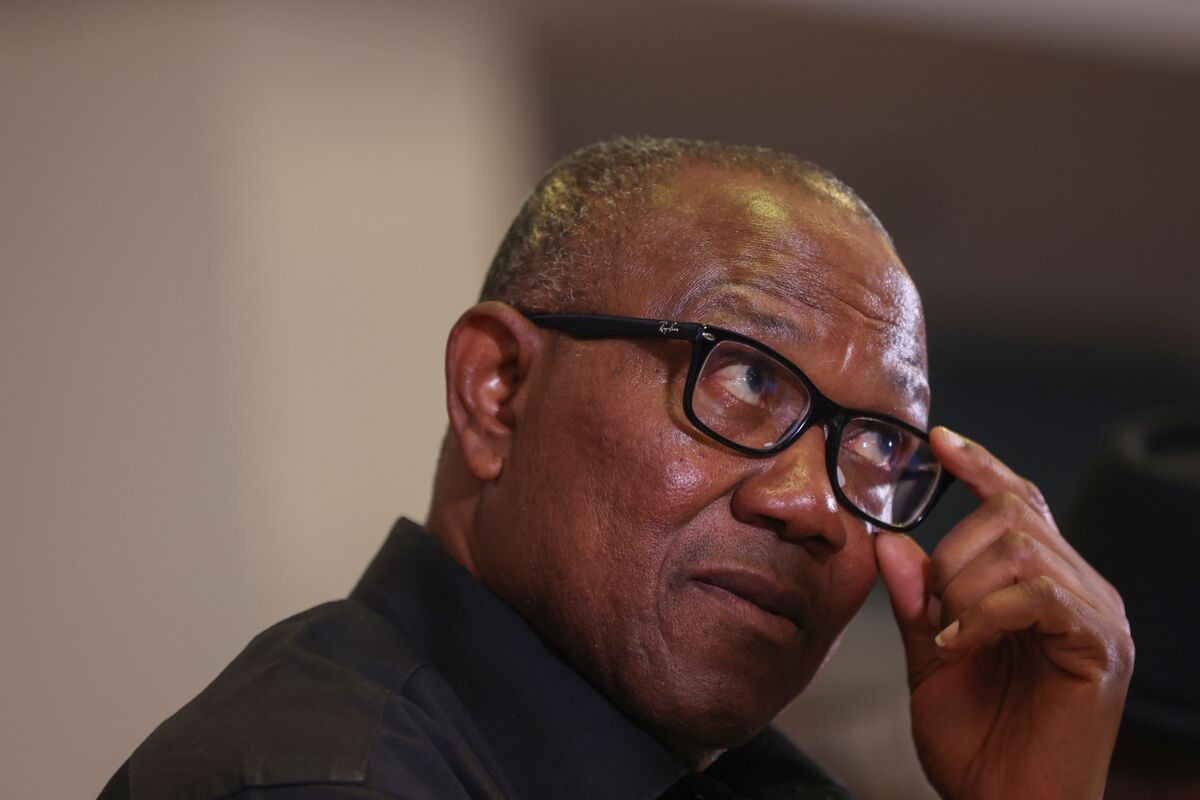Peter Obi’s ‘religious war’ comment: No to cover up
In what has now turned into a raging political storm, Labour Party’s presidential candidate in the just concluded 2023 presidential election, Peter Obi, was heard in a leaked audio of an alleged conversation with Bishop David Oyedepo of the Living Faith Church, to have described the elections as a “religious war’’. In the course of […]

In what has now turned into a raging political storm, Labour Party’s presidential candidate in the just concluded 2023 presidential election, Peter Obi, was heard in a leaked audio of an alleged conversation with Bishop David Oyedepo of the Living Faith Church, to have described the elections as a “religious war’’.
In the course of the conversation which took place on the eve of the elections, he was heard pleading with Bishop Oyedepo to call on Christians in the South West of the country and those in North Central states of Kwara, Kogi and Niger to vote for him during the elections.
Following the release of the audio by an online platform, the People’s Gazette, Nigerians waited with bated breath to see what the reaction of Peter Obi and the Labour Party would be to such a sensitive and potentially damning situation.
A prominent member of the party, Kenneth Okwonkwo, in his statement, admitted that Peter Obi was indeed the owner of the voice in the leaked audio, but added that the report by the People’s Gazette “misrepresented the context of the conversation.’’
The US should not worry about China-Gulf relations
So too did Peter Obi’s long-time spokesman, Valentine Obienyen, who said the audio was “badly doctored by the ruling party to manipulate my principal. “They edited out the Muslim-Muslim ticket that led to the discussion, where Obi said that in a society like ours, religious balancing was necessary and that this had made Christians to assume the election was a religious war’’. Bishop Oyedepo’s response too did not exactly deny the authenticity of the audio or the conversation leaked.
Equally important, the Foundation for Investigative Journalism (FIJ), an independent non-profit in Nigeria, subjected the audio to a series of tests for verifying fake or altered content online, and returned a verdict that “the audio is not a deepfake”. According to it, ”the Obi-Oyedepo audio was not AI-generated, and it underwent no technological alterations. FIJ added that its analysis also found “unique characteristics that are almost impossible to replicate in deepfakes”.
For an excruciatingly tense couple of days after the release, Peter Obi kept mum, giving rise to dangerous tendentious comments in the public space.
Peter Obi’s comment when it finally came was an anti-climactic denial. He stated, “Let me reiterate that the audio call being circulated is fake and at no time throughout the campaign and now did I ever say, think or even imply that the 2023 election is a religious war.’’
Between the stop-go inconsistency in the various explanatory statements of the Labour Party and its chieftains and the implausible denial by Peter Obi, Nigerians were left at a crossroads as to whether the audio and its content were fake or not.
In light of these developments, many supporters of Peter Obi and the Labour Party have latched on the argument that the leaked audio was an unauthorised invasion of Obi’s private communication and thus should be discountenanced in its entirety.
While we agree and advice Peter Obi to seek legal redress on this if he so desires, we believe, however, that a matter of such over-arching public and national interest should not be swept under the carpet. Indeed, if a politician who aspires to lead a diverse country like Nigeria at the highest level characterizes an election as a religious war, then the public interest imperative for disclosing it becomes more important than any privacy concerns, legitimate though they are.
We unequivocally condemn the characterization of presidential election in Nigeria as “religious war”, because it amounts to the crudest form of hate speech that is capable of throwing the country into chaos, particularly in a tense political atmosphere such as now. Furthermore, we insist that the federal government, political parties, the media and civil society organizations all have a responsibility to get to the bottom of this issue. If investigation determines that Peter Obi did in fact say so, then he must be held accountable for it and made to apologize to Nigerians for it. If not, then the newspaper that published it must also be held accountable for spreading false and dangerous information.
It must be said that to many Nigerians who have come to regard him as the new face of hope and the future of politics in Nigeria, his attempt to stoke the embers of religious sentiments among the voters was a serious letdown. Many Nigerians, including the neutrals, who see him as the candidate representing new and refreshing ideas in the quest for positive changes in the polity would have been thoroughly disappointed to hear him resort to the same negative tactics that we thought were the preserve of our old guard politicians.
Accordingly, Peter Obi’s attempt to deflect this clear political gaffe on his part with claims that he was being pressured to leave the country by certain unnamed forces falls into this pattern of behaviour on his part. This is insensitive to the millions of Nigerians across the religious and ethnic divide that look up to him.
As a public figure who aspires to preside over the affairs of such a religious and ethnically diverse entity as ours, Peter Obi is expected to be a unifying figure, not a divisive one as he clearly showed in the leaked audio. He should accordingly own up and apologise to Nigerians for this condemnable political gaffe.
